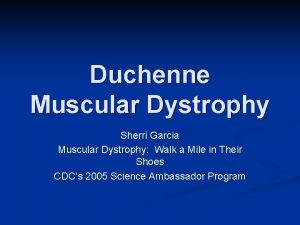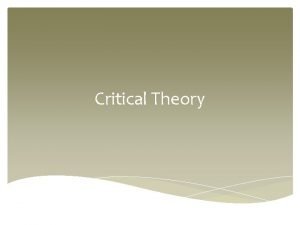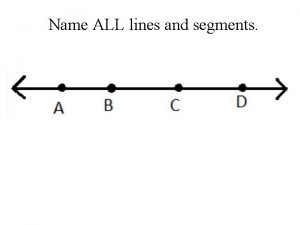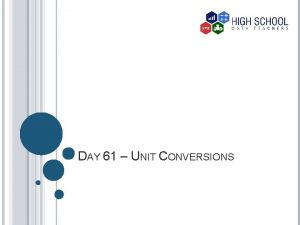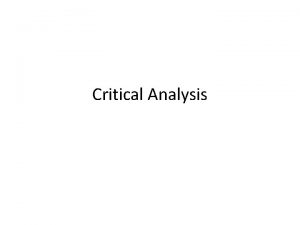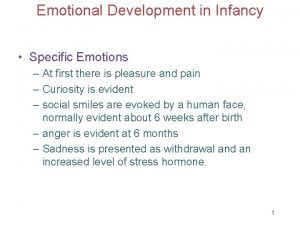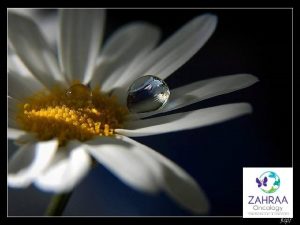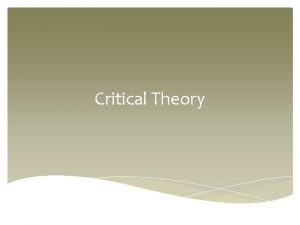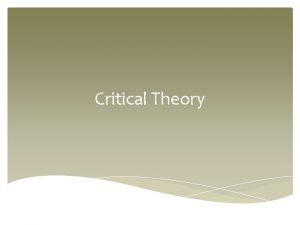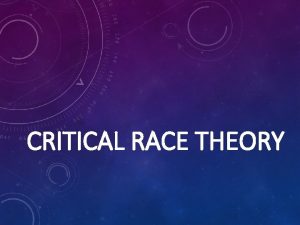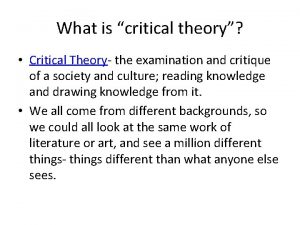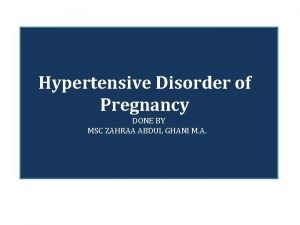Critical theory Name Zahraa sherri Year second year









- Slides: 9

Critical theory • • Name: Zahraa sherri Year: second year pf journalism Topic: critical theory Doctor: Hatem Alzein

What is the Critical theory The Frankfurt theorist Max Horkheimer described the critical theory as ‘it seeks to liberate human beings from the circumstances that them’ Critical theory aims to critique society, social structures, and systems of power, and in doing so, to foster egalitarian social change.

Critical theory perspectives: • 1. criticize mainstream perspectives for missing important relationships • 2. explain social injustice and inequality by exposing those hidden power relations • 3. do not separate events from a deep historical or societal context • 4. focus on description, and explanation, not prediction

History of critical theory Critical theory as it is known today can be traced to Marx's critique of the economy and society put forth in his many works. It is inspired greatly by Marx's theoretical formulation of the relationship between economic base and ideological superstructure and tends to focus on how power and domination operate, in particular, in the realm of the superstructure. Following in Marx's critical footsteps, Hungarian György Lukács and Italian Antonio Gramsci developed theories that explored the cultural and ideological sides of power and domination. Shortly following the period when Lukács and Gramsci developed and published their ideas, The Institute for Social Research was founded at the University of Frankfurt, and the Frankfurt School of critical theorists took shape. They focused on ideology and cultural forces as facilitators of domination and barriers to true freedom

Frankfurt School • The Frankfurt School is a school of social theory and philosophy associated in part with the Institute for Social Research at the Goethe University Frankfurt. Founded during the interwar period, the School consisted of Western Marxist dissidents uncomfortable with existing capitalist, fascist or communist systems. Many of these theorists believed that traditional theory could not adequately explain the turbulent and unexpected development of capitalist societies in the 20 th century.


The negatives • Critical theory is dangerous because it questions and critiques everything that the enlightenment of reason has brought us like capitalism and democracy and technology • Even though critical theory condemns the systems in place, it has not offered a comprehensive alternative system to replace it (what will replace capitalism and democracy) • Students are taught to question everything, including he teaching methods and structures of the school. This can lead to unfounded scepticism and rebelliousness

Engaging in critical thinking…. Caring for all individuals… Working towards bringing healing to a hurting world… The balance Yet respecting scripture and authorities Yet not rushing to fix this worlds institutions and ignoring the need for restoration of the soul Yet only as humble ambassadors of the mighty and wise king

Critical theory today • Over the years, the goals and tenets of critical theory have been adopted by many social scientists and philosophers who have come after the Frankfurt School. We can recognize critical theory today in many feminist theories and feminist approaches to conducting social science, in critical race theory, cultural theory, in gender and queer theory, and in media theory and media studies.




